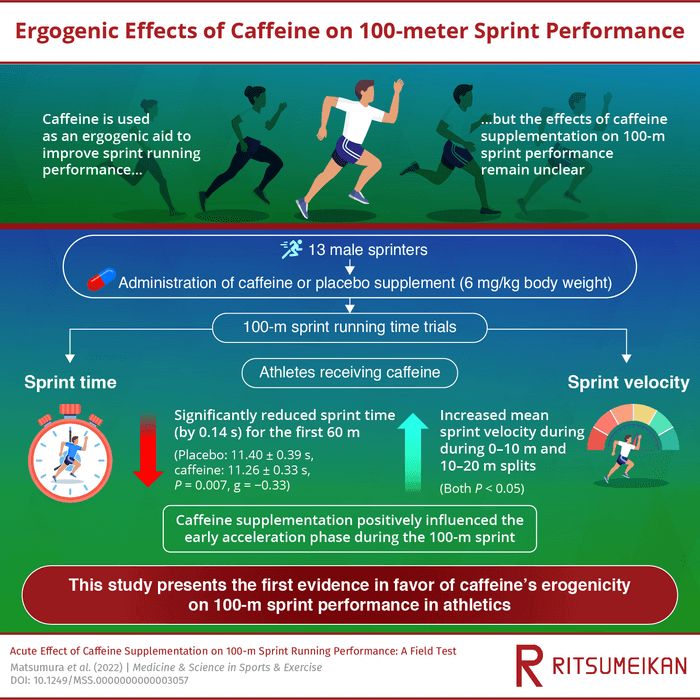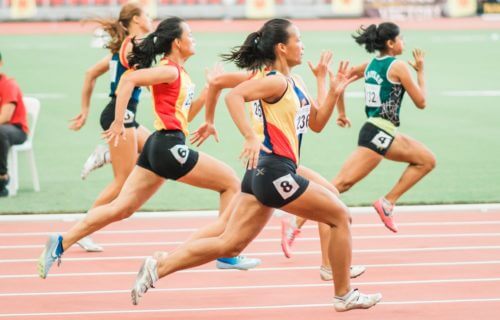KYOTO, Japan — Every advantage against a competitor counts in sports. A new study by Japanese researchers suggests that in the sport of running, caffeine really is a “pick-me-up” and leads to a quicker running time.
Currently, the International Association of Athletics Federations (now called World Athletics) recommends caffeine as a performance-enhancing nutritional aid for athletes. A limitation to this recommendation is that it isn’t based on solid evidence regarding sprinting specifically. Researchers from Ritsumeikan University set out to address the lack of evidence in this recent study.
“While previous studies have investigated the effects of caffeine on running activity, evidence from these studies is not conclusive enough to support the World Athletics consensus. A majority of them have looked at its effects on single sprint runs of less than 60 meters. Therefore, it was important to study the ergogenic effects of caffeine on the 100-meter sprint performance,” says Professor Takeshi Hashimoto in a university release.
To conduct this work, the team recruited 13 male collegiate sprinters. Preliminarily, they determined the time it takes for each athlete to reach peak blood plasma caffeine concentration after taking a supplement. The athletes then had to run 100-meter trials twice after receiving caffeine or placebo supplementation. To measure performance during the trials, the team monitored sprint velocity and calculated their sprint time. To account for environmental factors, researchers used the corrected sprint time to better analyze the effects of consuming caffeine.
Caffeine gets you out of the starting gate faster
Study authors found that the corrected 100-meter sprint time was significantly shorter for athletes who took caffeine supplements. Compared to the controls, there was a reduction of 0.14 seconds. This was largely linked to a shorter sprint time during the first 60 meters of the sprint. Despite this, there was no significant difference in the last 40 meters of the sprint. Additionally, they also found that the average velocity was greater for meters 0-10 and 10-20 among those consuming caffeine.

These results suggest that the caffeine supplementation allowed the athletes to start off more powerfully, helping them finish the race sooner.
“The insights gained from this study have given us the first direct evidence of caffeine’s ergogenicity on sprint running in athletics. This also serves as evidence to directly support the recommendations for caffeine usage by World Athletics. The study thus provides one more advantage that athletes can use to inch themselves closer towards victory,” concludes Prof. Hashimoto.
Hashimoto and the team hope to better understand the mechanistic reasoning for caffeine’s impact on activities like sprinting and jumping in the future.
The findings are published in the journal Medicine & Science in Sports & Exercise.

